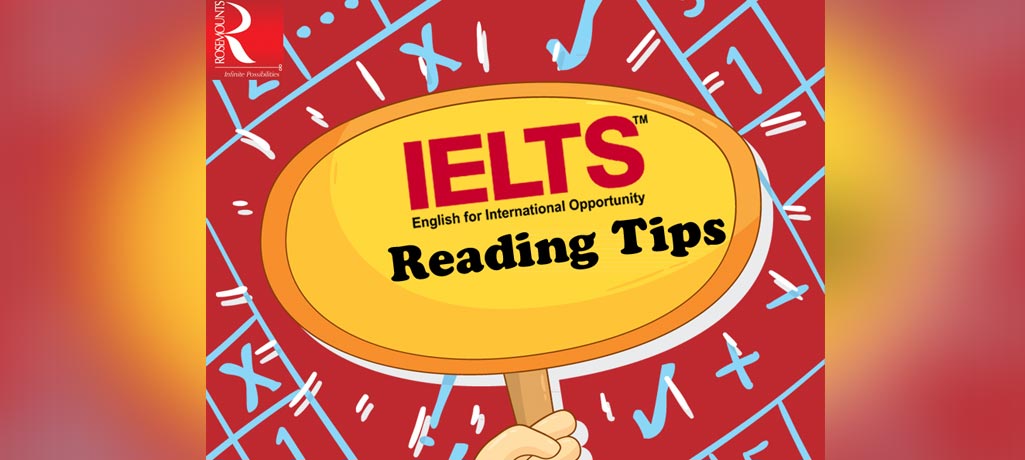As promised, here is my second blog in the IELTS reading series. These top 12 tips and tricks will not only help you gain a higher score in the IELTS reading test but can also be applied to any other English proficiency exam. Remember there is no magic wand. If you want to score a band 7 or higher you need to develop certain skills, here’s where you should focus your efforts.
- Read, read, and read some more
Usually, students who don’t perform well on the IELTS reading test aren’t in the habit of reading in English. So read everything you can from newspapers to magazines, novels or even blog articles. The more you read the better you will perform. - Hone your skimming and scanning skills
Skimming and scanning are the most essential skills required to tackle reading comprehensions. They are reading techniques that use rapid eye movement and the identification of keywords to move quickly through text for slightly different purposes.
Skimming is reading rapidly to get a general overview of the material. Scanning is reading rapidly to find specific facts. While skimming tells you what general information is contained within a section, scanning helps you locate a particular fact. You should familiarize yourself and practice both in turn. - Practice elimination
To reach the right answer, first eliminate the wrong one. Look for the best available choice, not the right choice. Remember it’s English, a language, not mathematics. There is only the best available choice. - Don’t try to understand every single word
Not all the information given in the passage is important. It is the question which tells you what information to look for. Secondly, you don’t have to know the meaning of every single word. Sometimes we get stuck with terminologies used in the passage and get side tracked by individual words or phrases – instead just focus on the context. - Focus on contextual vocabulary
IELTS reading majorly test your ability to understand the meaning of the word from the context. There will be times when you will not know the meaning of a word but don’t get disheartened. To understand the word read the sentence carefully. If needed, read the previous sentence and the next sentence. Understand the context and you will find the meaning of the word simply pops out! - Read the instructions very carefully
Many IELTS candidates lose marks because they fail to read the instructions properly. This is especially true in the reading and listening tests because they give very specific instructions. If you don’t follow these instructions exactly, you will get the question wrong. - Spend time with the questions
You must read and understand the questions carefully. That’s the key to getting the right answers. It is the question that will lead you to the right answer. Not the other way around. - Manage your time carefully
If there are three paragraphs each passage will vary in length. You should not spend more than 15 minutes on the shortest passage, 20 minutes on the next passage and 25 minutes on the longest passage.If there are four paragraphs then each would be more or less of equal length so divide your time accordingly.Remember each question is worth 1 mark so don’t spend too much time on a single question. If you can’t find the answer move on to the next question and revisit it again later.
- Answer the questions based on the information provided in the passage
Familiarity breeds contempt. Even if the topic of the passage is familiar base your answers on the information provided not what you think is right. - Leave no question unanswered
There is no negative marking. So even if you don’t know the answer, make sure you attempt every question. You might get lucky and you have nothing to lose. - Be careful when you transfer answers onto the answer sheet
A common mistake is to spend too much time reading and answering questions and not enough time transferring your answers to the answer sheet. It is only natural that silly mistakes are made when people are under pressure so leave yourself enough time to get the answers onto the answer sheet accurately. Remember you will be penalised for poor spelling and incorrect grammar so copy your answers across carefully. - Practice, practice and practice some more
Well, that’s a time-tested piece of advice isn’t it? The more you practice the better you get at the game. Initially, you don’t need to be bothered about the time just focus on your technique. Once you start scoring well, start timing yourself.
The above are some very practical tips. If you follow them, I am sure that you will ace the reading test. My next blog would be on the different question types associated with the IELTS Reading test. So continue reading and learning.






